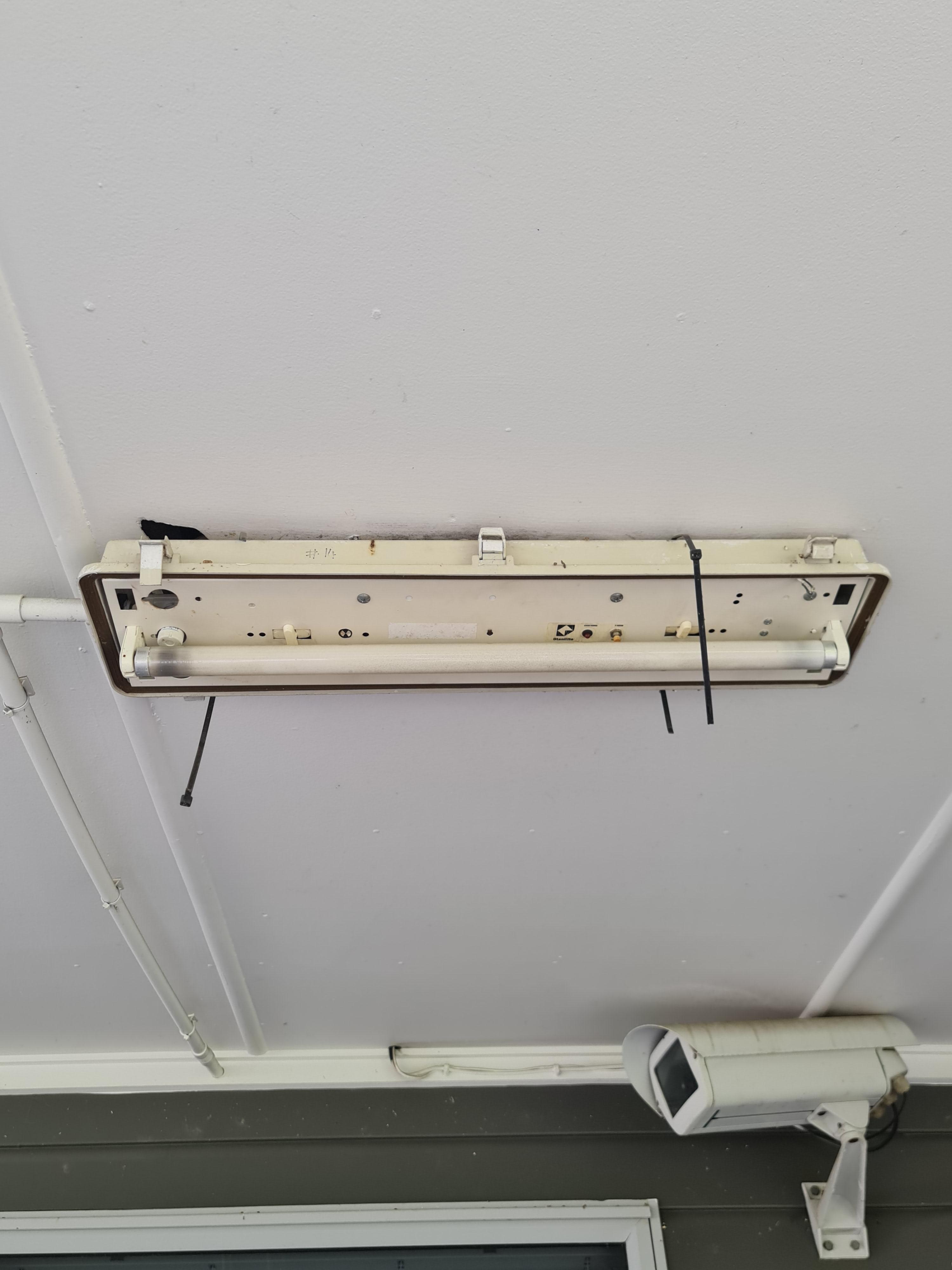Replacing Exit Light batteries used to be an effective way of maintaining lights and keeping them from the rubbish bin.
However, labour costs, the cost of the battery and complying to the standard with 1.33 times the test time (2 hours) makes changing a battery more expensive than replacing a light.
At FCF Fire and Electrical we purpose built a test board that has created efficiencies when testing the lights.
For example, we could switch out 20 batteries in lights charge them for 16 to 20 hours (depending on manufacture recharge times) run a 1.33 test time and pass or fail the lights without going to site. Over the course of 18 months, we worked out that the lights might pass with a battery change, however the charger card would fail within 6-12months.
As a result, FCF Fire and Electrical switching batteries out as this method is more costly to the client compared to replacing the failed Exit or Emergency Light with a new unit.
The type of batteries used in Emergency/Exit Lighting can vary depending on the manufacturer and model. It’s important to ensure that the replacement battery is the correct type and has the same voltage and capacity as the original battery.
The frequency of battery replacement will depend on the type of battery and the usage of the Emergency/Exit Lighting. It’s recommended to check the manufacturer’s recommendations for battery replacement and perform regular testing to ensure the battery is still functioning correctly.
Emergency/Exit Lighting is subject to safety standards and regulations, and it’s important to ensure that any replacement batteries comply with these standards. This may include specific testing requirements and performance standards.
The cost-benefit analysis of replacing batteries vs. replacing the entire unit: In some cases, it may be more cost-effective to replace the entire Emergency/Exit Lighting unit rather than just the battery. This will depend on factors such as the cost of the replacement battery, the cost of labour to replace the battery, and the overall age and condition of the unit.
Old batteries should be dispose of in an environmentally-friendly way, as they can contain hazardous materials. Some manufacturers may offer a recycling program for their batteries, or there may be local battery recycling options available.

Battery fail


